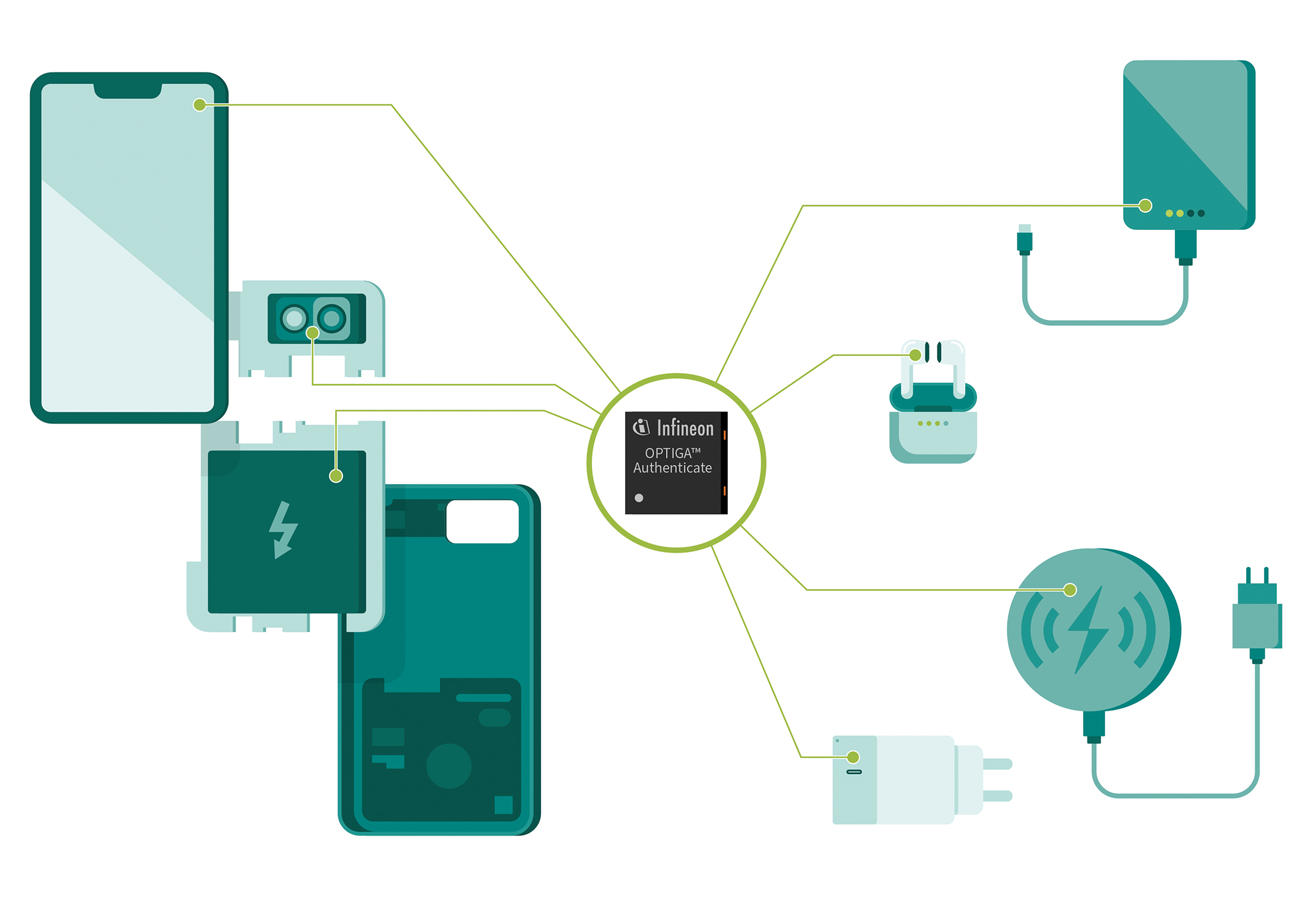Munich, Germany – 25 September 2023 – Global resources are becoming increasingly scarce and responsible use of them is crucial to counteracting climate change. With over 57.4 million tons of electronic waste produced annually (2021) at a net worth of nearly $60 billion [1], e-waste constitutes one of the largest waste streams. Keeping resources circulating in the value chain for as long as possible is one way to tackle this challenge. A circular economy helps extend the lifecycle of products, saving resources and energy. Providing reliable spare parts for electronic devices plays a major role in this concept. Authentication solutions like the Infineon Technologies AG’s (FSE: IFX / OTCQX: IFNNY) OPTIGA™ Authenticate product family support the verification of spare parts as well as original products and contribute to a trustworthy, sustainable economic approach.
A circular approach to electronic products is defined by what is called the 6R concept: Reduce, reliability, repair, reuse, refurbish and recycle. To Infineon, circular economy is relevant on different levels: These principles not only guide the company’s waste management for instance by reusing solvents in the manufacturing process. Infineon’s product design also aims to reduce resource consumption and hazardous waste and replace critical substances. On the other hand, Infineon delivers products to customers that help them innovate and create more sustainable solutions to the market based on the principles of circularity.
Sustainable and reliable – thanks to OPTIGA™ Authenticate security solutions
The Right to Repair regulation, for example, is not only under the umbrella of the European Green Deal, but also part of national sustainability programs worldwide. Infineon security solutions such as the OPTIGA Authenticate family support manufacturing companies in efficiently and purposefully addressing some of the key challenges of these new regulations and in reducing their environmental footprint.
The goal of the EU’s Right to Repair, Battery and Ecodesign initiatives is to save resources and increase energy efficiency of products. With regards to the Right to Repair this means that consumers not only have a right to the availability of spare parts. It should also be kept in mind that in many cases non-professionals have to be able to repair the product. Manufacturers therefore face the challenge of meeting their warranty claims, but also providing spare parts, while at the same time protecting the quality of their brand and their intellectual property as well as protecting the safety of end users.
“The OPTIGA Authenticate product family allows authentication of devices, the verification of spare parts and of the genuineness of original products. This enables product safety for end users and helps manufacturing companies meet quality and performance standards for electronic devices”, explains Josef Haid, Distinguished Engineer Security System Architectures Infineon Technologies. “Authenticators also create more security and transparency for consumers, since they can trust the authenticity and quality of devices and spare parts. Moreover, due to the increased demand for spare parts, it opens up a new market for the industry, covers potential warranty claims, and prevents counterfeiting at the same time.”
Authentication solutions protecting consumers and products
The OPTIGA Authenticate product family can be used in a wide range of replaceable components for example within a smartphone ecosystem. In a smartphone, elements such as batteries, displays and camera modules as well as power adapters, wireless chargers, and headphones (see graphic) can be equipped with authenticators. In addition, OPTIGA Authenticate security solutions can be used in other electronic devices such as power tools, notebooks, light electric vehicles, multicopters, VR/AR applications and many more. The mechanism is very simple: The OPTIGA Authenticate S security chip is integrated in a product, for example, the battery (client) of an e-scooter (host). This allows the host and client to communicate with one another and authenticate themselves, letting the host verify that the battery is original or that it conforms to certain standards. The authentication process itself is managed by the exchange of certificates, keys, and cryptographic tasks.
Authentication solutions such as the OPTIGA Authenticate product family are an easy and cost-efficient way for manufacturers to help meet legal requirements and protect their brand value from potential counterfeits. With the OPTIGA Authenticate product family, Infineon takes another step towards a circular economy, making it possible for its customers to build more sustainable solutions.
[1] https://pacecircular.org/action-agenda/electronics



















